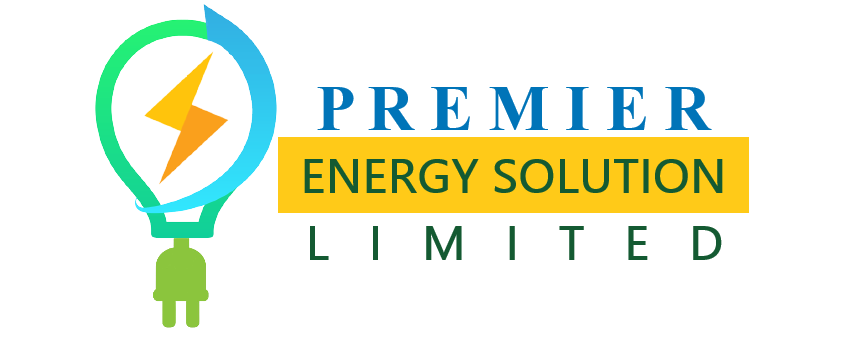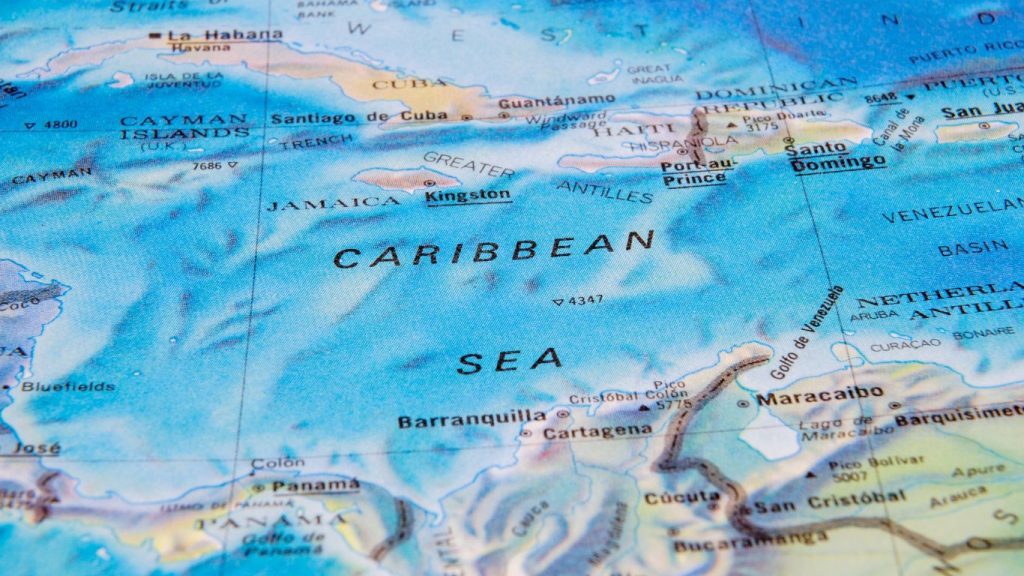Read Time: 10 minutes:
Highlights:
- Are there incentives for using solar energy in Jamaica?
- Is solar energy a smart investment in Jamaica?
- Important things to consider before ordering a solar installation
- What are the solar energy financing options in Jamaica?
- Which is better for solar installation loan, lease or PPA?
- Solar inverters and their types?
- What are the different types of solar batteries?
- What is the lifespan of the solar energy system in Jamaica?
- What is the cost of a solar-powered household in Jamaica?
Keywords: Solar energy in Jamaica, Solar inverter, PV battery, hybrid solar battery system
What is the solar potential in Jamaica?
Jamaica has a high solar energy potential due to its location near the equator, which allows it to receive abundant amounts of solar radiation throughout the year. Jamaica is also tropical, with relatively stable weather conditions and low levels of atmospheric turbulence, making it ideal for solar energy generation. The average solar radiation levels in Jamaica are estimated to be around 5.5 kilowatt-hours per square meter per day, which is among the highest in the world. With such high levels of solar radiation, Jamaica has the potential to generate significant amounts of solar energy, making it an attractive location for the development of solar energy projects. As a solar products supplier “Premier Energy Solution (premierenergysolutionja.com)” regularly receives many questions from home/business owners, solar energy installers, and corporations. Although the majority of these frequently asked questions (FAQ) are trivial, even the most experienced solar installers need to be sure before making a daunting decision on solar investment. Therefore, we have gathered ten frequently asked questions from Jamaican customers about solar energy systems..
1 How much does it cost to install solar panels in Jamaica?
The cost of installing solar panels in Jamaica can vary depending on the size of the system and the type of panels used. On average, a grid-tied solar energy system for a typical home in Jamaica can cost anywhere from JMD 1 million to JMD 2 million Jamaica Observer. The total cost includes equipment, installation, and necessary permits and approvals. Some costs, such as the cost of equipment, can be reduced by selecting high-quality, cost-effective equipment. In contrast, the costs, such as installation costs, may be affected by the complexity of the installation and the availability of labor in the area. “Premier Energy Solution ” can provide a detailed cost estimate, including the cost of equipment, installation, and any necessary permits and approvals.
2 Are there incentives for using solar energy in Jamaica?
In Jamaica, several tax incentives and rebates are available for individuals and businesses that invest in solar energy systems.
- Corporate Tax Credit: Businesses that invest in renewable energy, including solar energy, can receive a corporate tax credit Renewable Energy- Tax credits (pwc.com). This tax credit is based on a percentage of the cost of the installation and can be claimed as a reduction in the business’s taxable income.
- Personal Tax Credit: Individuals who invest in solar energy for their homes can receive a personal tax credit Renewable Energy Policy – Jamaica Information Service (jis.gov.jm). This tax credit is based on a percentage of the cost of the installation and can be claimed as a reduction in the individual’s taxable income.
- Duty Concession: The importation of solar energy equipment, including panels, inverters, and batteries, is eligible for a duty concession Relief for the renewable energy sector – Jamaica Observer. This concession reduces the amount of import duty that must be paid on the equipment, making the installation more cost-effective.
- Grant Programs: Several grant programs are available for individuals and businesses that invest in solar energy in Jamaica. These programs provide financial assistance for installing solar energy systems Grants – Development Bank of Jamaica (dbankjm.com).
Premier Energy Solution (premierenergysolutionja.com) can guide you about the specific tax incentives and rebates available to you which depend on the location and type of installation.
3 Is solar energy a smart investment in Jamaica?
Installing a solar energy system in Jamaica can be a wise investment for several reasons:
- Cost savings: Solar energy can significantly reduce or eliminate monthly electricity bills, leading to significant long-term cost savings.
- Increased property value: A solar energy system can increase the value of a property and make it more attractive to potential buyers.
- Government incentives: Jamaica offers many incentives for solar energy installations, including tax credits and rebates, which can make solar energy even more cost-effective
- Reduced dependence on fossil fuels: Solar energy is a clean and renewable energy source, reducing dependence on finite and increasingly expensive fossil fuels.
- Improved energy security: With a solar energy system, electricity is generated on-site, reducing the dependence on the power grid and improving energy security.
4 Important things to consider before ordering a solar installation
The best solar products in Jamaica will depend on several factors, including the specific needs and requirements of the user, the local climate and weather conditions, and the available budget. Some of the factors that should be considered when selecting solar products include the following:
- Panel efficiency: Higher efficiency panels generate more energy per unit of surface area, making them a good choice for smaller installations or installations with limited roof space.
- Brand reputation: It is important to select high-quality equipment from reputable manufacturers to ensure reliable performance and a long lifespan.
- Warranty: An extended warranty can provide peace of mind and protect the investment in the event of equipment failure
- Price: Solar products’ prices vary widely, and selecting equipment that provides the best value for money.
- Installation and maintenance: Some solar products may be more complex to install or require more maintenance than others, so it is important to consider maintenance factors.
5 What are the solar energy financing options in Jamaica?
There are many financing options available for solar energy systems in Jamaica, including:
- Cash purchase: A cash purchase is the simplest financing option and allows the customer to own the solar energy system outright Jamaica Information Service (jis.gov.jm).
- Loan financing: Loan financing allows the customer to finance the cost of the solar energy system through a loan, which can be obtained from a financial institution or a specialized solar energy financing company.
- Leasing: Leasing allows the customer to use a solar energy system without owning it, paying a monthly fee for the equipment.
- Power Purchase Agreement (PPA): A PPA is a contract in which a third-party developer installs, owns, and operates the solar energy system, selling the electricity generated to the customer at a negotiated price Solar Energy Ideal Option for Many Jamaicans (jis.gov.jm).
Each financing option has its advantages and disadvantages, and it is important to carefully consider the costs and benefits of each option before making a decision. Contact “Premier Energy Solution (premierenergysolutionja.com)” for guidance on feasible solar financing options.
6 Which is better for solar installation loan, lease or PPA?
The best financing option for a solar energy system in Jamaica will depend on the user’s specific needs. Some factors to consider when choosing between a Loan, Lease, or PPA includes:
- Ownership: A cash purchase, loan, or lease allows the customer to own the solar energy system outright, while a PPA is a contract in which a third-party developer installs, owns, and operates the system.
- Upfront costs: A loan, lease, or PPA can reduce the upfront costs of a solar energy system but may result in higher long-term costs due to interest and/or fees.
- Monthly payments: A loan, lease, or PPA will result in monthly payments, while a cash purchase will not.
- Maintenance: A loan, lease, or PPA typically includes maintenance and repair services, while a cash purchase will require the customer to bear these costs.
- Electricity rate: A PPA will set the rate at which the customer purchases electricity, while a loan, lease, or cash purchase will not.
7 Solar inverters and their types?
Inverters are a vital component to convert the direct current (DC) energy generated by the solar panels into alternating current (AC) that can be used in a building. String inverters, micro inverters, power optimizers, and central inverters are commonly utilized inverters Isratech Jamaica Limited.
- String inverter: A string inverter is a most commonly used type in residential solar energy systems. It converts DC energy from multiple solar panels connected in series into AC energy.
- Micro inverter: A micro inverter is a small, stand-alone inverter attached to each solar panel. It independently converts the DC energy from each panel into AC energy, allowing for optimized energy production from each panel.
- Power optimizer: A power optimizer is a device attached to each individual solar panel and optimizes the panel’s energy production. The DC energy from the panels is then sent to a central inverter, which converts the energy into AC energy.
- Central inverter: A central inverter is a large, centralized inverter that converts the DC energy from multiple solar panels into AC energy. This type of inverter is typically used in larger commercial or industrial solar energy systems.
The best type of inverter will depend on the size of the system, the number of solar arrays/panels, and the local climate and weather conditions.
8 What are the different types of solar batteries?
Solar batteries can store excess energy during the solar power generation. The batteries allows the user to utilize this energy during night or cloudy days All About Solar Batteries – Forbes Home. There are several types of solar batteries available, including:
- Lead-acid batteries: Lead-acid batteries are the most common type of solar battery and have been used for many years. They are relatively inexpensive but also heavy and have a limited lifespan.
- Lithium-ion batteries: Lithium-ion batteries are becoming increasingly popular for solar energy systems due to their lighter weight, longer lifespan, and greater energy density.
- Nickel-cadmium batteries: Nickel-cadmium batteries are similar to lead-acid batteries but are more expensive and have a longer lifespan.
- Flow batteries: Flow batteries store energy in two tanks of liquid, which are pumped through a cell stack to generate electricity. They are typically used in larger commercial or industrial solar energy systems.
- Saltwater batteries: Saltwater batteries use a mixture of saltwater and other materials to store energy. They are relatively new and have not yet been widely adopted, but they have the potential to be a cost-effective and environmentally friendly option in the future.
The best type of solar battery for a specific installation will depend on several factors, including the size of the system, the amount of energy that needs to be stored, and the budget available for the battery.
9 What is the lifespan of the solar energy system in Jamaica?
The life of a solar energy system in Jamaica, also known as its lifespan, is typically estimated to be 25 to 30 years. This lifespan is based on the expected performance and durability of the components of the system, such as solar panels, inverters, and batteries (Forbes Home). Many factors, such as the quality of the components, the installation and maintenance practices, and local weather conditions, can influence the actual lifespan of a solar energy system in Jamaica. Additionally, technological advances in solar energy components and manufacturing processes may increase the lifespan of solar energy systems in the future. Regular maintenance and cleaning of the solar panels and other components can help to extend the lifespan of a solar energy system and ensure optimal performance over its lifetime.
10 What is the cost of a solar-powered household in Jamaica?
The basic calculation of a solar energy system for a household in Jamaica involves determining the amount of energy the household uses on a daily basis and then determining the size of the solar energy system needed to meet that demand pv magazine International (pv-magazine.com).
The first step is to determine the household’s average daily electricity consumption in kilowatt-hours (kWh). This information can usually be obtained from the household’s electricity bills.
Next, the size of the solar energy system required to meet this demand can be calculated. A typical solar panel has a capacity of around 250 to 340 watts, and the number of panels needed will depend on the total daily energy consumption of the household. For example, a household that uses an average of 8 kilowatt-hours per day would require a system with a capacity of around 2,500 to 3,500 watts.
Finally, the cost of the solar energy system can be estimated based on the size of the system and the cost of the components, including solar panels, inverters, batteries, and other equipment. The cost of installation and other expenses, such as permits and fees, should also be considered.




